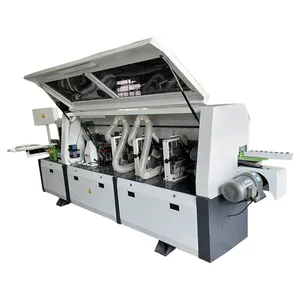Popular in your industry



























































Related Searches:























































































































Top categories
About laboratory hepa filter
Introduction to Laboratory HEPA Filter
A laboratory HEPA filter is a critical component in maintaining a clean and sterile environment in laboratory settings. These filters are designed to remove airborne particles, including dust, pollen, bacteria, and other contaminants, ensuring the air quality in the laboratory meets the required standards for sensitive experiments and research.
Technical Specifications and Design
When considering a laboratory HEPA filter, it's essential to look at the technical specifications to ensure it meets the specific requirements of the laboratory. The efficiency of a HEPA filter is determined by its ability to trap particles of a certain size, typically 0.3 microns. The design of the filter, including the pleating pattern and media used, plays a crucial role in its effectiveness.
HEPA Filter in Biosafety Cabinet
Integrating a HEPA filter into a biosafety cabinet adds an extra layer of protection by providing a sterile environment for handling biological samples and hazardous materials. The combination of a biosafety cabinet with a HEPA filter ensures that any contaminants or pathogens are contained within the cabinet, safeguarding both the operator and the laboratory environment.
Benefits of Biosafety Cabinet HEPA Filter
The use of a biosafety cabinet HEPA filter offers numerous benefits, including improved air quality, increased safety for laboratory personnel, and protection against cross-contamination. These filters are essential for laboratories working with hazardous materials or conducting sensitive experiments that require a controlled environment.
HEPA Filter for CO2 Incubator
When selecting a HEPA filter for a CO2 incubator, it's crucial to choose a filter that can maintain the necessary air quality within the incubator. CO2 incubators are used for cell culture applications, and having a HEPA filter ensures that the incubator's environment remains free from contaminants that could affect cell growth and viability.
Key Features and Performance
The lab HEPA filter is designed to provide high-efficiency particulate air filtration, removing 99.97% of particles down to 0.3 microns in size. The filter's design includes a large surface area for optimal airflow and filtration capacity, ensuring consistent air quality in the laboratory environment.
Use Scenarios and Applications
Laboratory HEPA filters are essential in various laboratory settings, including pharmaceutical research, biotechnology, microbiology, and clinical diagnostics. These filters are used in cleanrooms, biosafety cabinets, laminar flow hoods, and other controlled environments where maintaining air quality is critical to the success of experiments and research.
Choosing the Right HEPA Filter
When choosing a HEPA filter for your laboratory, consider factors such as the required efficiency level, airflow capacity, filter size, and compatibility with existing equipment. It's important to select a filter that meets the specific needs of your laboratory and complies with industry standards for air quality and safety.
Maintenance and Replacement
To ensure the optimal performance of your laboratory HEPA filter, regular maintenance and timely replacement are essential. Follow the manufacturer's guidelines for cleaning and replacing the filter to prevent a buildup of contaminants and maintain the filter's efficiency in trapping airborne particles effectively.
Final Thoughts on Laboratory HEPA Filter
In conclusion, a laboratory HEPA filter is a vital component in creating a clean and sterile environment for laboratory work. Whether integrated into biosafety cabinets, CO2 incubators, or cleanrooms, these filters play a crucial role in ensuring the safety of personnel, the integrity of experiments, and the success of research endeavors.















































































